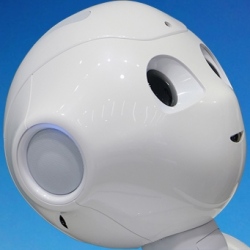
Rice University computer scientist Moshe Vardi expects that within 30 years, machines will be capable of doing almost any job that a human can. What are the implications? Can the global economy adapt to greater than 50 percent unemployment? Will those out of work be content to live a life of leisure?
"We are approaching a time when machines will be able to outperform humans at almost any task," Vardi said. "I believe that society needs to confront this question before it is upon us: If machines are capable of doing almost any work humans can do, what will humans do?"
"The question I want to put forward is, ‘Does the technology we are developing ultimately benefit mankind?’" Vardi said. He will present a body of evidence that suggests the pace of advancement in the field of artificial intelligence (AI) is increasing, even as existing robotic and AI technologies are eliminating a growing number of middle-class jobs and thereby driving up income inequality.
Vardi said some people believe that future advances in automation will ultimately benefit humans, just as automation has benefited society since the dawn of the industrial age.
"A typical answer is that if machines will do all our work, we will be free to pursue leisure activities," Vardi said. But even if the world economic system can be restructured to enable billions of people to live lives of leisure, Vardi questions whether it would benefit humanity.
"Humanity is about to face perhaps its greatest challenge ever, which is finding meaning in life after the end of ‘In the sweat of thy face shalt thou eat bread,’" Vardi said. "We need to rise to the occasion and meet this challenge" before human labor becomes obsolete, he said.
